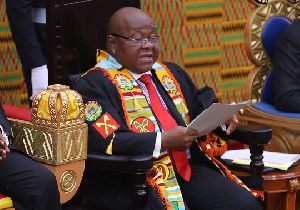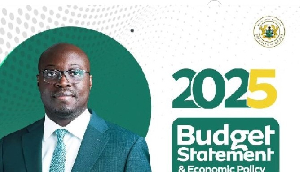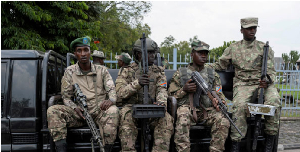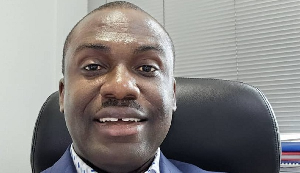As the country's two major political parties, the NPP and the NDC and an array of pretenders crisscross the country making a beeline for urban and rural areas to woo voters, I can't think of anything better than calling their bluff.
What are they going to do about the burgeoning national deficit, the grinding poverty, and the failing health and education systems?
But most important, are there any plans in the offing to address the ever expanding chasm between the north and the south?
Northern Ghana the largest swath of land in the nation has fallen on some really hard times, and that is just putting it mildly. A recent report paints a rather grim picture of a region mired in poverty and destitution. A historical truism?that the north lags behind the rest of the country in all aspects of development?still holds.
It is not my intention to trivialize the admirable resilience of millions of Ghanaians caught in the current economic thrall, but I think it won't be out of place to depict the situation in the north as debilitating.
A first time visitor to Tamale, Bolgatanga, and Wa, is struck by the staggering poverty, the large pools of the unemployed and the decaying infrastructure. There is a dearth of public and private sector jobs. Government agencies that once provided hundreds of young men and women with jobs are now shuttered.
Agriculture, the mainstay of the region's economy remains anemic because incentives to young people to continue the time-honored tradition of tilling the land are nonexistent.
The only referral medical facility in the region, the Tamale General Hospital, is acutely understaffed, and has deteriorated to such extent that experts say building a new one would be the sensible thing to do. Good drinking water is scarce and as a direct consequence, the rate of guinea worm infections have soared. It is not a pretty picture.
Not everything is gloomy; the roads in Tamale are in good shape, thanks in large part to the NDC, though it took the party twenty years to come around to the idea that good roads are indispensable to economic growth, parts of the region are still inaccessible.
All of which brings us to a very fundamental question; is the region's predicament due to the benign neglect of past governments, or its perennial election of ineffective politicians who can't bring home the bacon?
Honestly, there are no immediate answers, and the question itself is debatable. However, the fact that the north has been consistently marginalized and the votes of its people taken for granted by elected officials cannot be wished away
The prevailing view is that the north does not get its fair share of the national cake. Though, I have a hard time subscribing to this widely held perception, there is a modicum of truth to it. Past administrations with the distinct exception of a few, have paid scant attention to the peculiar needs of the north and its people.
There is nothing more cowardly than passing the buck, passing up responsibility. Oh yes, it is very convenient to blame Accra, and by extension the south for the problems in the north. But, let us be realistic here. Northerners are just as guilty.
One school of thought excoriates northern politicians. Northern politicos unlike their southern counterparts, are deemed ineffective, loud, and abrasive. When it comes "doing something" ? steering important development programs to the region ? they are less assertive.
No northern politician can proudly point to an ongoing project and say, "this is my pet project." Northern constituents see development projects being diverted to other parts of the country and wondered why they sent these politicians to Accra in the first place.
Don't get me wrong, folks, there are gems in the corps of northern politicians, but something got to give; their performance to date does not draw rave reviews. The evidence of that is overwhelming.
And some pertinent questions need to be asked: how do lawmakers explain the large exodus of young men and women from the region to the nation's capital for menial jobs? What about capital investment in the region? NGOs cannot provide the panacea to the region's laundry list of problems. (The UN just discontinued the funding of NGOS to fight Aids in Africa because of poor accounting practices)
Still, other questions remain. What about the most riveting issue of all?stability in the region? What, if anything at all, is being done to bring warring factions in the region together to ensure peace and prosperity?
And now this unpleasant truth; the region has become the brunt of jokes among other Ghanaians primarily because it can't get its act together. The first salvos in the current internecine squabble were fired when this writer was a toddler, but forty years later there is no end in sight to this madness. Is it not true that as other parts of the country lunge towards economic emancipation, the northern region is trapped in a time warp and remains on the fringes? Prosperity will continue to elude the region if its inhabitants can't forge a common ground.
Northern political fat cats have to be told in uncertain terms that if they don't shape up, voters will use the power of the ballot box to send a very clear message come November.









![Isaac Kwadwo Ampong [L] and President John Mahama Isaac Kwadwo Ampong [L] and President John Mahama](https://cdn.ghanaweb.com/imagelib/pics/549/54996138.295.jpg)





